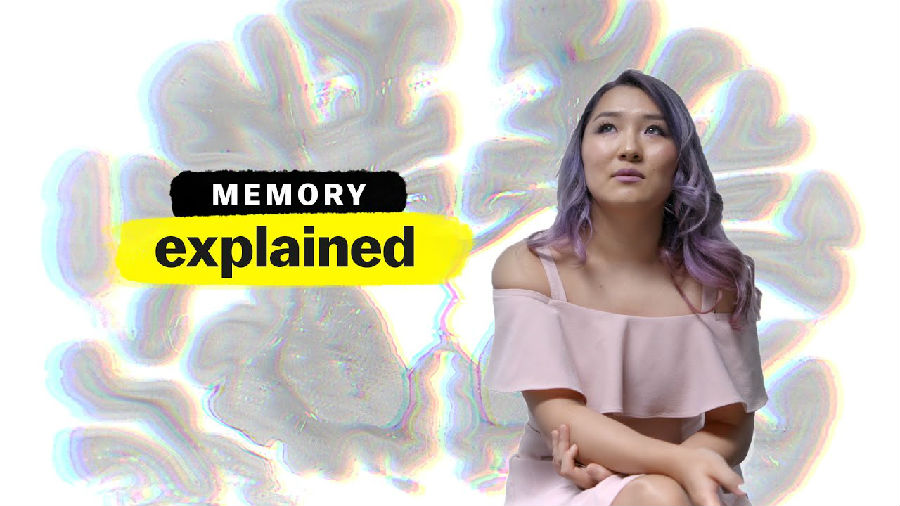(单词翻译:单击)
Some moments feel so important, we believe there is a perfect recording of them etched in our minds.
我们以为,生命中的重大时刻都会深深地印刻在我们的脑海里。
"That’s one small step for man…"
“这是人类的一小步…”
"Tear down this wall."
“推倒这堵墙!”
"Diana Princess of Wales, is dead."
“威尔士王妃戴安娜去世。”
For many, 9/11 was one of those moments.
对很多人来说,9/11就是这样的时刻。
"I was getting ready to go to class and I put on the TV."
“我正准备去上课,我打开电视…
"And the newscaster stopped and said this just in."
“看到新闻主播停下说道:‘刚收到消息’,
"Two planes hit the twin towers."
“两架飞机撞上了双子塔。”
"Every single channel had a building that was on fire."
“每个频道播放的都是大楼着火的画面。”
"This businessman was covered in dust."
“有个西装革履的人身上全是灰。”
"Then I saw the big hole in the side of the building."
“我看到大楼侧面被击穿了个大洞。”
"Yeah it was sort of surreal."
“嗯,感觉就跟做梦一样。”
"very confusing and disorienting."
“让人感觉一头雾水,懵逼了。”
"I felt a sense of dread."
“有种恐惧感。”
"I remember my mom was working in the city,
“我记得我妈妈当时就在纽约工作,
and I remember smoke billowing out over the water of the Long Island sound behind the building where I went to elementary school.
还记得我上的那所小学后面的长岛海湾的水面上浓烟滚滚,
I was just talking with my parents about it one day and my mom goes no you know in 2001 I was working in Connecticut.'"
有一天,我和爸爸妈妈聊到这事儿,我妈妈却说,‘没有啊,2001年的时候,我还在康涅狄格州工作呢。’”
And there were other problems with Melanie’s memory of that day.
梅勒妮那一天的记忆还有其他问题。
Her classroom windows didn’t look out over the water.
从她所在的教室的窗户是看不到水的。
The World Trade Center was over 40 miles away and the smoke was drifting in the opposite direction.
世贸中心距离她的学校足足有64公里,而且,烟是朝着相反的方向飘的,并没有朝她学校那边飘。
How could I possibly have seen the smoke billowing from over the water … Like how would I see that?
我怎么可能看到了烟在水面上翻腾呢?我怎么会看到那一幕呢?
"Your memories for 9/11 are probably not as accurate as you think.
你对9/11的记忆可能并没有你以为的那么准确,
We know about 50 percent of the details of that memory change in a year even though most people are convinced they're 100 percent right.
我们知道,尽管大多数人都坚信自己的记忆100%准确,但大家关于那次事件的记忆,过一年就会有50%的发生变化。
They might correctly remember the gist of the day,
他们或许准确记住了那一天的要点,
but not details like who they were with, what they were doing when they heard, and what exactly they saw.
但有关的细节,比如当时和谁在一起,听到消息的时候他们在做什么,他们到底看到了什么就记得没那么清了。
Even our most significant memories, the ones that form the foundation of our life story, aren’t perfect recordings,
即便是我们最重要的记忆,也就是构成我们人生故事基础的那些记忆,都不是完美的一五一十的纪录。
they can shift and warp over time.
它们会随时间改变,扭曲。
It feels like the whole purpose of memory should be to preserve the past. So why are memories so unreliable?
感觉记忆的总体目标应该是保存我们的过去啊。那为什么还如此不可靠呢?
How exactly does remembering work?
记忆到底是如何运作的?
"Wait a second now, I do remember. You're...uhhh."
“稍等一下 我真的记得你的,你是那个…那个……”
"Memory, that everybody has, is a goldmine of unexplored and untapped potential."
“每个人的记忆都是一座金矿,充满了尚未探索和开发的潜力。”
"Our memory just mediates our interractions with the world."
“记忆调节着我们与世界的互动。”
"Memory is one of our most fundamental activities, that it is only when it fails us that we think about it at all."
“记忆是我们最基本的活动之一,只有失去它以后,我们才会想起它。”
Yanjaa Wintersoul is a grandmaster of memory. All right here we go.
燕佳·温特索尔是一位记忆天才。好了,我们开始吧。

5 years ago, she discovered the world of memory competitions.
5年前,她发现了一个新天地:记忆比赛。
When I first started, it was mostly like a bunch of white guys from Europe and very like sad-looking competition rooms.
开始那会儿,参赛者差不多都是欧洲来的白人,竞赛的场所也非常寒酸。
They memorize decks of cards in seconds, thousands of digits in an hour.
几秒钟他们就能记住好几副牌,一小时就能记住几千个数字。
"It looks like we're all taking a very speedy SATs.
就好像我们在参加快速SAT考试一样。
I have three world records: one for images, one for names and faces, and one for words."
我破了三项世界纪录:记图片,记姓名和面孔,还有记单词。”
And she's demonstrated her skills on TV shows around the world。
她也曾在世界各地的电视节目中展示过她的这一技能。
"Ok, Page 38."
“好的,第38页”
“It starts mid-sentence .
从句子中间开始的,
‘information effectively by using humor.’"
“利用幽默有效地传递信息。”
We gave her ten minutes to memorize these 500 numbers and...
我们给了她十分钟时间来记住这500个数字,最后…
539-166-974-579-478-468-766-146 17 … 2 225-902-634-582-177-161-12.
539-166-974-579-478-468-766-146 17 … 2 225-902-634-582-177-161-12.
How does she do that? Yay.
她是怎么做到的?耶!
It all comes down to the peculiar way our brains store memories.
这都要归结于我们大脑存储记忆的独特方式。
And perhaps no brain has taught us more about memory than this one.
关于记忆,或许,这个大脑给我们的启发最大。
It belonged to a man named Henry Molaison.
这个大脑属于一个叫亨利·莫莱森的人。
When Henry was 27, he had brain surgery to treat epilepsy.
亨利在他27岁那年做过治疗癫痫的脑部手术。
And the surgeon removed this little piece of his brain.
最后,医生切掉了他大脑的这一小块。
The surgeon noted that the procedure resulted in “no marked behavioral changes”, with the one exception of “a very grave, recent memory loss.”
他注意到,手术并未导致“明显的行为变化”,除了“短期记忆严重流失。”
It was so severe, it prevented Henry from navigating his own house and recognizing his doctors.
严重到亨利在自己家都会迷路,也无法认出自己的医生。
But Henry still had other types of memory: habits that don’t require conscious thought, like how to ride a bike, so called “implicit memories”.
但亨利其他类型的记忆,也即无需刻意思考的习惯,比如骑自行车等,并没有受到影响,这就是所谓的“内隐记忆”。
He also kept some conscious or “explicit” memories.
他还保留了一些有意识记忆,又名“外显”记忆。
He discussed historical events with his doctor in this recording from the early 90s:
在这段90年代初的录音中,他还和他的医生探讨过历史:
What happened in 1929?
1929年发生了什么大事?
The stock market crashed.
股市崩溃了。
It sure did.
没错。
“That’s an example of “semantic memory” - facts, dates, numbers, words - the kinds of things memory athletes memorize.
这种记忆算是语义记忆——事实,日期,数字,单词等——记忆比赛考察的就是选手的这种记忆能力。
The real damage was to Henry’s “episodic memory” - his memory for personal experiences.
亨利真正受损的是他的“情景记忆”,是有关他个人经历的记忆。
When his doctor asked “Do you know what you did yesterday,”
当他的医生问他,“你还记得昨天你做了什么吗?”
he replied: "No, I don't."
他回答…“不,不记得了。”
"How about this morning?"
“那今天早上的呢?”
I don't even remember that.
“也不记得了。”


